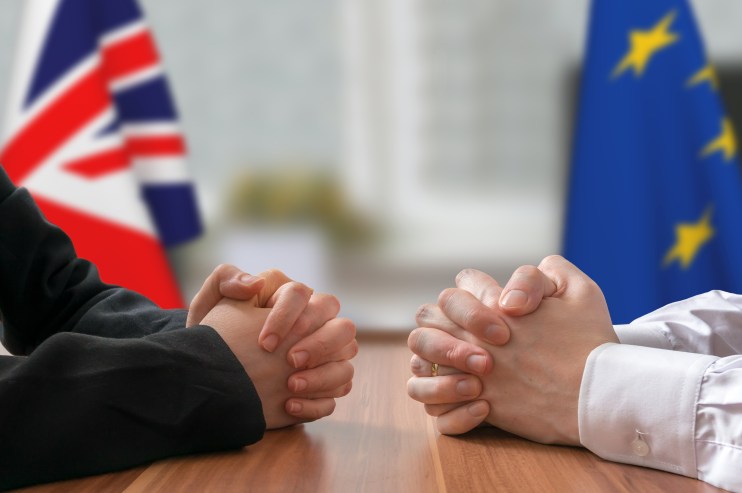Brexit has become a project of protectionist nationalism

As the Conservative party’s vision for post-Brexit Britain becomes clearer, are there any liberal Brexiteers left who can’t see just how far this project has run away from them?
I too once believed that Brexit could be a liberal project, but that vision now looks like nothing more than a useful idiot’s delusion.
Do you remember the liberal Brexiteers’ wagon rolling into town? Brexit would see Britain opting for a relationship with the EU based on economic ties and trade as it frees itself from political union.
We’d have the best of both worlds. EU nationals would have nothing to worry about because they’d retain all their rights. Ignore the naysayers, Britain will not turn in on itself but be more open and engaged with the world.
Swashbuckling Britain would become a standard bearer of free trade. As a champion of the free market, we would sign a multitude of trade agreements to open our market to the world and give British businesses new exporting opportunities.
Brexit Britain would be a global hub of commerce: open for business, open for trade, and open for people. As we signed new deals to remove barriers to trade and cut tariffs, our supermarkets would be stocked with cheap imported goods from all over the world.
It would not be an act of insularity and regression, but a chance to become more global and more open.
Reality check. Theresa May chose a path and the Conservatives cannot veer off it now. She opted not to take a conciliatory approach and find a Brexit compromise that might bring a degree of unity. She snubbed liberals, sneered at “citizens of the world”, and saw restricting immigration as the great prize of Brexit. She hardened the divide that Brexit created.
By the time Boris Johnson became Prime Minister, his only choice was to build an election-winning majority from a coalition of Leave voters. That coalition does not include the minority of liberal Brexiteers any more than it includes Remainers.
With Boris ostensibly more liberal than May, many hoped that there would be a change in tone and substance on Brexit and immigration. Instead, he doubled down.
There is a lamentable pattern of anti-immigration rhetoric in the Tory election strategy, as they set an aim to reduce immigration overall and vehemently oppose reciprocal free movement rights with the EU.
From whipping up xenophobic hysteria by claiming that immigration will rise to 840,000 people a year under Labour, to implying that EU migrants are benefit scroungers rather than a net economic and social benefit, the Conservatives have adopted a decidedly illiberal stance on migration.
The party has also committed to an anti-trade doctrine, a “buy British” rule for the public sector, and promoting the “local economy” in the procurement process. This form of protectionism is straight from the Trump and Corbyn playbook — they are not the policies of a party serious about free markets and free trade.
The “buy local” fallacy is an illogical policy that shows a lack of confidence in local economies and a misunderstanding of their specialised nature. If it’s better to procure goods or services from overseas, the government shouldn’t intervene — it would merely be promoting higher costs, reduced choice and inefficiency. Local economies are better off trading freely for mutual benefit.
Another benefit of Brexit, according to the Conservatives in this election campaign, is to ditch state aid rules so that they can bail out and subsidise failing British industries. Brexit is now about the freedom to give taxpayer handouts to failing industries with close connections to the government or electoral significance in key constituencies.
Making a profit is the evidence of a business adding value to society. No business should be considered too big to fail. Economies change, industries change, and the government cannot hold back the tide. They should concentrate on adapting the country to inevitable change and supporting people to gain the skills they will need for the future.
What’s extraordinary about this is that eurosceptic Conservatives have long denounced the EU as anti-competitive and protectionist. This rang true until British influence helped reshape the EU to promote more open economies, cross-border competition, and free trade.
The Single Market, the largest and most integrated free trade area in the world, changed the EU irrevocably, and Conservative idol Margaret Thatcher led the way.
Now, we have a Conservative government promoting Brexit as a means of gaining the freedom to restrict immigration, bail out failing industries, and implement protectionist policies. Those who said Brexit was a nationalist project feel vindicated — and who can argue?
Main image credit: Getty